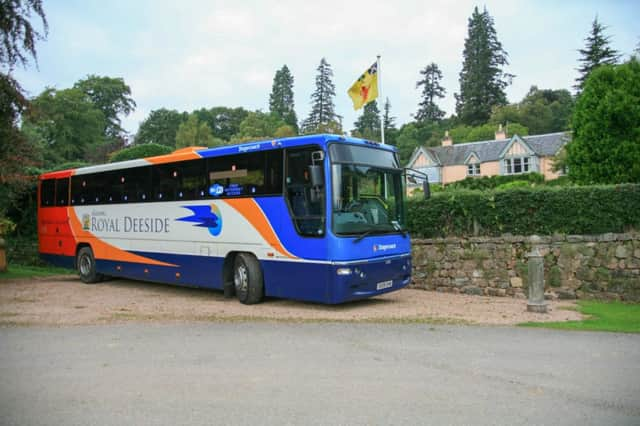Stagecoach shares shunted as car use dents buses


The news jolted the stock market even though the Perth-based group said the fall would be offset by expected growing profits from its Virgin Rail joint venture, which runs the West Coast Main Line between Glasgow and London Euston.
It came as the company unveiled pre-tax profits of £98.3 million for the six months to end-October, marginally down on the £98.5m in the same period last year, as revenues rose 4.8 per cent to £1.54 billion.
Advertisement
Hide AdAdvertisement
Hide AdMartin Griffiths, group chief executive, said: “The market does what the market does. I’m surprised because our overall message is that we will be in line (in terms of earnings) with what we said would we would do.”
He said it was more a case of the likely divisional mix of earnings, and the business was in “excellent financial shape”. Shares in the group later recovered somewhat, closing down 6.9 per cent or 28.2p at 379.2p.
The oil price has slumped 40 per cent over the past six months, tempting motorists back into their cars for shorter journeys rather than using the bus.
Griffiths said that the scale of reduction in car input costs “will have an impact on us”. He added: “Over the last eight weeks we have seen a slowdown in [UK bus] growth.
We are just being cautious on the [outlook for] rest of the year.”
He said there had been strong competition in Manchester, where Stagecoach has its biggest bus company, which is projecting full-year revenues down £5m year-on-year.
Profit margin at the regional bus division in the UK eased down to 14.7 per cent from 15.2 per cent amid the rising headwinds.
Stagecoach also expects the cost of filling staff vacancies to rise amid the improving economy, while taking over routes from other operators as well as radically expanding its Megabus operation in mainland Europe was also likely to drag on short-term earnings.
Advertisement
Hide AdAdvertisement
Hide AdThe group said North American trading had been hit by poor weather in November, where the falling fuel prices were likely to hit demand in an already competitive US market.
Its UK regional bus operations increased profits to £77.3m from £76.9m, while its share of profit from Virgin Rail leapt to £9m from £1.1m.
Profits in North America, where the company also has a Megabus operation, rose to £21.7m from £19.6m. The dividend rises 10.3 per cent to 3.2p from 2.9p.
Stagecoach and Sir Richard Branson’s Virgin Group recently won the contract to run the East Coast rail line between Inverness and London from next spring, taking the line back into private ownership after five years under state control.
The Scottish group will own 90 per cent of the new business – to be called Inter City Railways – while Virgin Group will have 10 per cent, with the joint venture paying £3.3bn to the Treasury over eight years.
Inter City Railways has promised a 50 per cent rise in seat capacity, with 65 new intercity express trains being brought into service from 2018.
Yesterday John Lawson, transport guru at Investec, wrote in a note that the award of the East Coast contract “should have a meaningful kicker” for Stagecoach’s earnings in the financial year to April 2016, but would have little impact in the current financial year because of the start date of the franchise.
The firm has also been shortlisted for the TransPennine Express franchise, and is looking to extend its franchise for East Midlands Trains and South West Trains out of London Waterloo, the latter being Britain’s biggest commuter rail franchise.
SUBSCRIBE TO THE SCOTSMAN’S BUSINESS BRIEFING